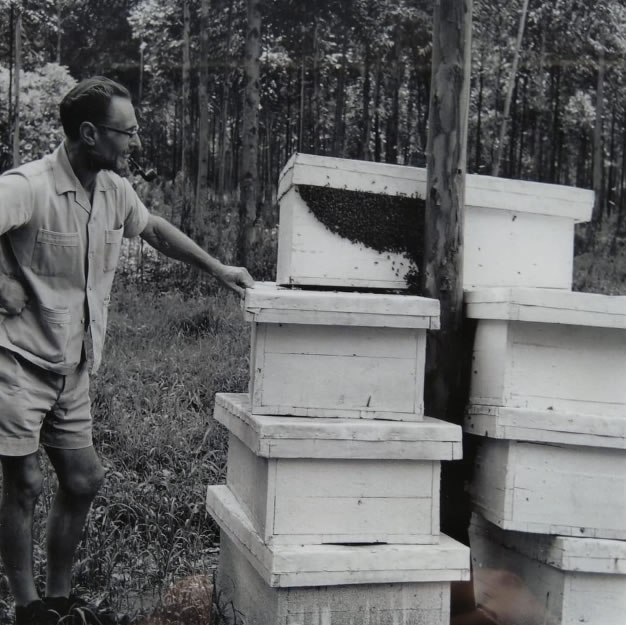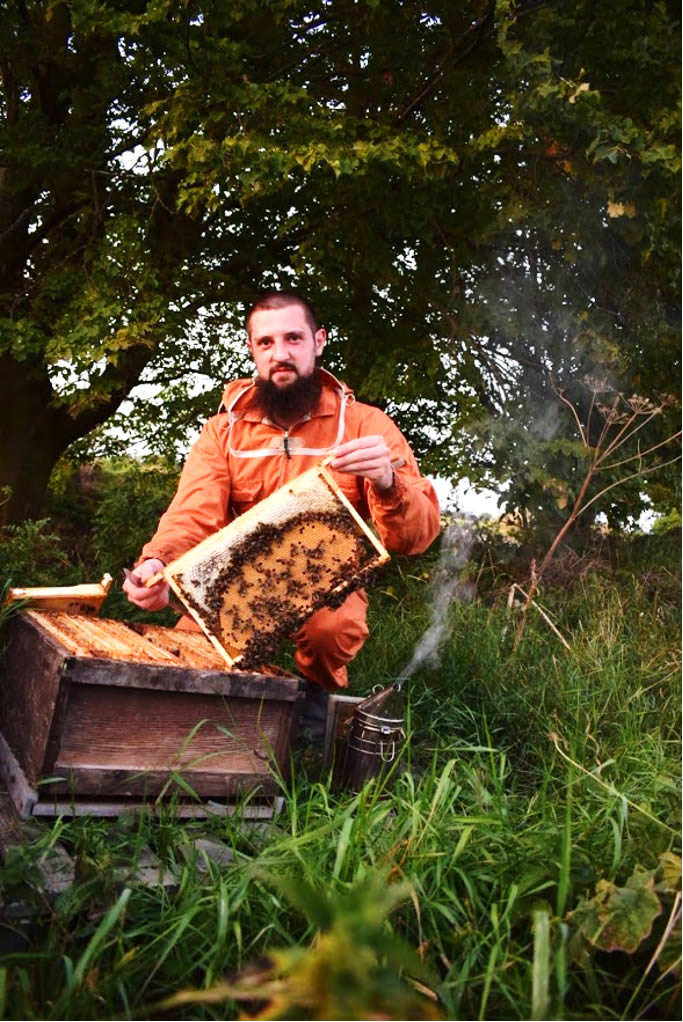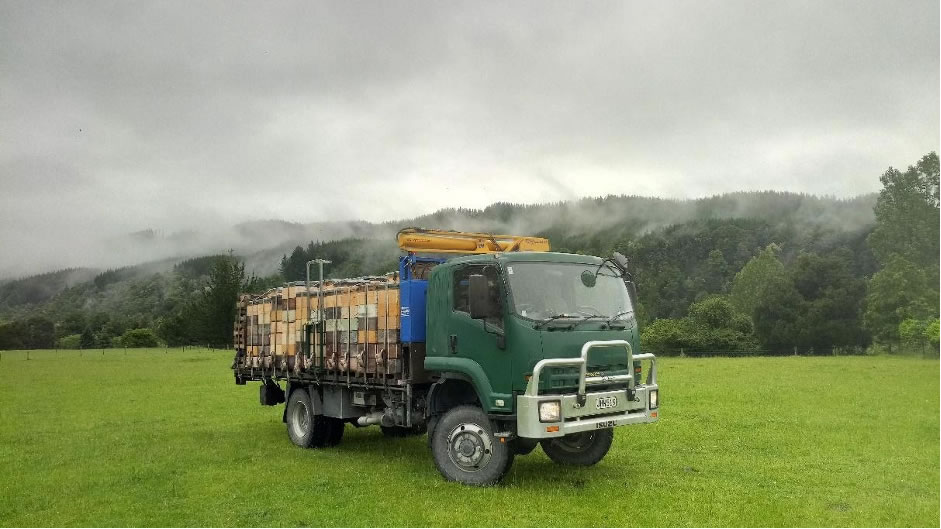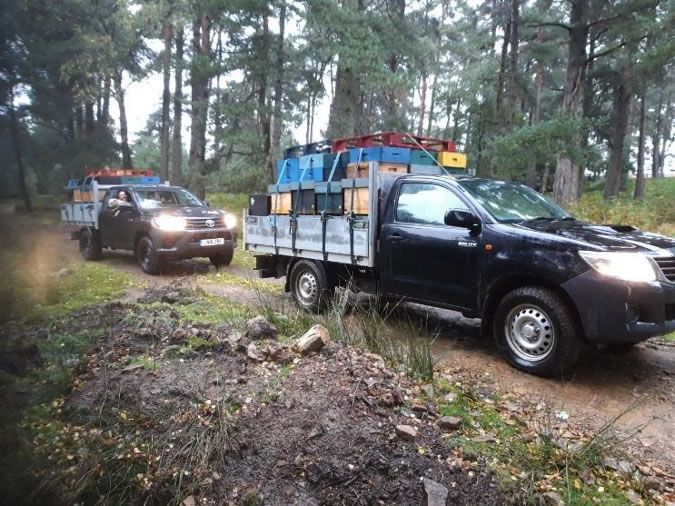One bee farming apprentice’s journey to graduation
After gaining a first-class degree in microbiology, Jack yearned for something more than a comfortable position as a medical sales representative could offer. Settled in Cambridge, he began keeping bees as a keen hobbyist, quickly seeking opportunities to experience and learn in assisting larger scale hobbyists with their own bees. During this time he applied to undertake an apprenticeship at the London Honey Company.
With hands-on teaching to manage 350 colonies, Jack’s confidence in key decision-making grew dramatically. Working day-to-day, seeing hundreds of colonies in a week, leaves its mark; the speed and ‘bee-sight’ of a commercial bee farmer are just two things that experience brings, and were honed through a breadth of apiary locations. From rooftops in London with tricky access, heather moors and fierce elements, to woodlands in Kent and estates in the Cotswolds, each has their own variation on a season, forage, and physical challenges.
Alongside producing a wide array of honeys and products of the hive, essential teaching blocks at East Surrey Bees provided a thorough base of theory knowledge with immediately apparent practical applications. The support this element of the apprenticeship offered mad a big impact on how Jack approached his daily work.
The apprenticeship also encouraged a sabbatical in the third year to spend time with different bee farmers nationally and internationally, for exposure to often very different management techniques, business structures, and ethos. Sponsorship by the Queen Elizabeth Scholarship Trust and Highgrove Enterprises enabled Jack to work in New Zealand’s Mānuka season at Manuka Island Honey. This yielded unique insight into queen rearing and novel management techniques for 750 double-queen colonies in an environment almost as challenging as London’s congestion zone.
On completion of his apprenticeship with a Distinction in 2020, Jack set up his own company, Bee & Bird, bringing great British products of the bee hive to artisanal food producers, delis and real food enthusiasts. He offers seminars, tuition, apiary management and cavity nest removal, and he is also an authorised Bee Inspector.
He is currently working in a team with Ghanaian bee farmers and vets to make Ghana’s honey suitable for export.



